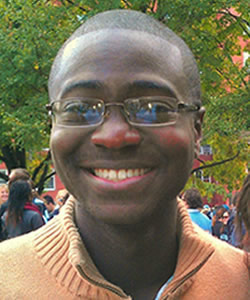There is no phrase more emblematic of the American experience than We the People. This phrase is not only my favorite quote, but it represents all of America’s hopes and fears, strengths and frustrations, and, has throughout the centuries, evoked the envy of billions of citizens across the globe. When the Supreme Court upheld the Patient Protection and Affordable Care Act at the end of June, I thought about the poor, vulnerable minority citizens, the elderly, people with preexisting conditions, and a host of other marginalized groups in our society. My excitement turned into fear, however, when I remembered all the contentious social cases making their way up to the conservative Supreme Court. As the the wading tide of my reflections simmered, so did my ideations of We the People.
Shortly after the Supreme Court ruling, Josh Gerstein from Politico discussed how cases such as voter ids, Affirmative Action, the constitutionality of the Voting Rights Act, and same sex marriage could possibly help shape the legacy of the Roberts Court. The article alluded that Justice Roberts may have voted the way he did on health care so that when/if these issues arrived at the High Court, Justice Roberts could point to the health care ruling to show that the Court was, in fact, completely impartial.
We the People is involved in three of the cases mentioned above because they deal with our country’s painful legacy of race and class exclusion. In regards to voter ids, although Republicans cry “fraud” as the driving impetus for new laws, one does not have to look too far to see the groups who will be most impacted are black and Hispanic voters who tend to vote Democrat. In regards to Affirmative Action, it is blacks and Hispanics, who, through no fault of their own, will continue to be left behind millions at a time by our broken education system. Last, in regards to the Voting Rights Act, it is blacks who have the most at stake, as the law was created to protect them against discriminatory practices in polling booths. As an African American male, living in a racially charged country, I cannot help but sense my vision of We the People is under attack. As a concerned liberal, I despair every time issues involving discrimination find their path under the “impartial” eyes of men named Roberts, Scalia, Thomas, and Alito. I have nothing against conservatives per se; it is just that I feel they are either apathetic or blind to larger macroscopic iniquities in our society.
A few weeks ago, Brian Goldman wrote something which still has left a sour note on me. He said, in regards to a conversation we had on race, that we “will likely never agree on either the issue or the solution.” How could this possibly be true? Having visited cities such as Washington D.C. and Baltimore, it is shocking to believe that no one finds it an “issue” that large numbers of minorities are idle, underemployed, or unemployed compared to white Americans. How could it be that the majority of conservatives buy the argument that minority citizens must “work harder” and stop demanding a “handout?” It does seem difficult to believe that in a country with hundreds of millions of people, that the majority of minorities are simply not working hard. The fact that we have policies such as Affirmative Action in the first place does not show me that minorities are not working hard, but rather, that something is very much wrong with resource allocation in our country-a sad problem our nation, both past and present, has done nothing to address. When I see institutions of power in our society dominated by whites only while service industries are filled to the brim with blacks and Hispanics, it is difficult to see how We the People fits in.
The main reason these iniquities are troubling is because we are setting our country up for a crisis only a few decades away. In a country where more than half the children under the age of one are ethnic minorities, it behooves me that white Americans, who are overall doing quite well, are not frightened by the coming wave. What kind of country will we be living in 40 years from now if the future majority are poor, uneducated, and disenfranchised?
When I hear the voices of white conservatives who say race should not, and does not matter, I point to entire cities such as Baltimore, and I ask them to open their eyes. Since race for a large part helps define the spaces where white Americans live, the neighborhoods they drive their cars through, and racial stereotypes-for better or worse-they harbor against minorities; race seems pretty much to do everything with everything. Those who take issue with this need to look out their window and ask themselves how much of this is true. When I think about Affirmative Action, the Voting Rights Act, and voter ids, and I think of Justice Roberts, Scalia, Thomas, and Alito as “arbiters of justice,” I honestly lose all hope in our democracy. I truly want to believe these men support We the People, but all I foresee by these cases being heard, is how non-white citizens will be adversely impacted. Again, We the People is emblematic of the American experience, but sadly, it has begun to show its slow demise.
I write these words not to inflict guilt, hatred, nor to be divisive-for nothing I have said here is intrinsically new. I write for the sole purpose of inspiring all Americans to do as many Millennial Values Fellows are trying to do across the country. I write to incite anyone who takes issue with anything I have written to be a part of the conversation. I write to inspire people to speak honestly about race because if we do not deal with race, and very soon, We the People will become nothing more than a memory of our old republic.

